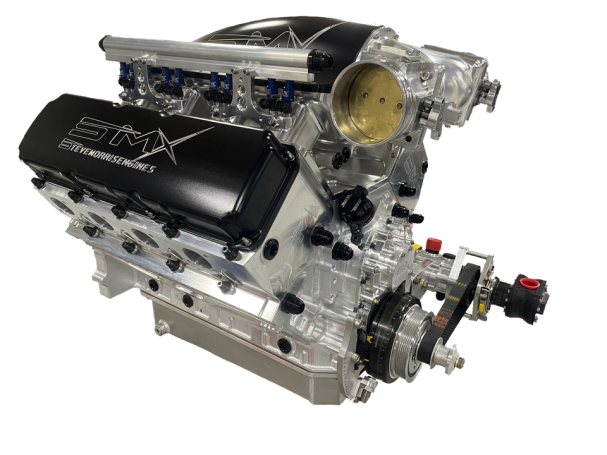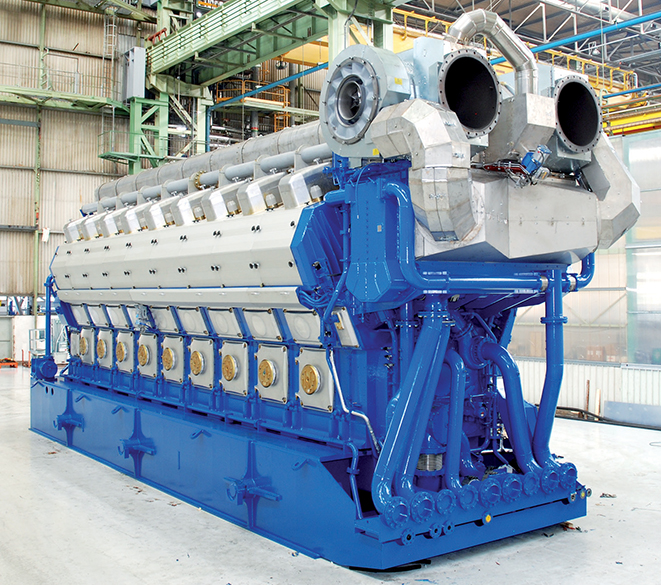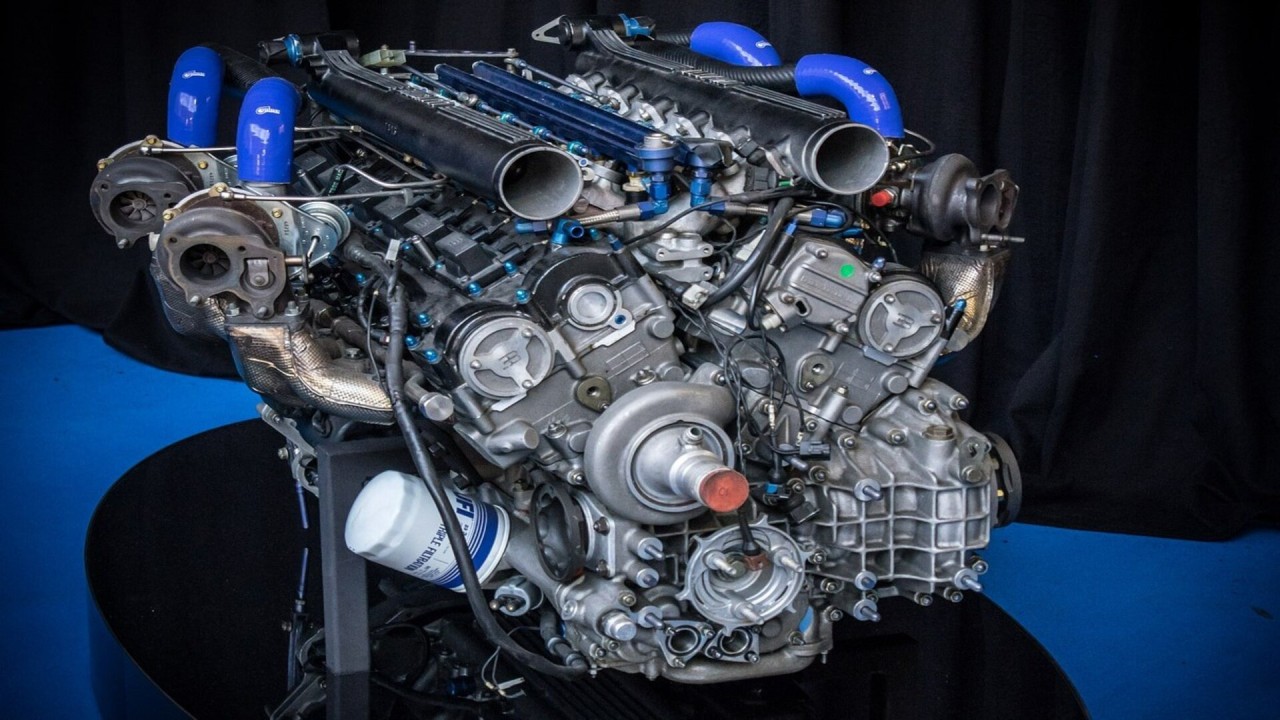Why Businesses Prefer Engines For Africa for Their Fleet
Why Businesses Prefer Engines For Africa for Their Fleet
Blog Article
Explore a Wide Variety of Engines for Every Vehicle and Purpose
The auto landscape is increasingly complicated, with a diverse variety of engine kinds made to meet certain performance and efficiency requirements throughout numerous car groups. From the high-performance engines that power cars to the fuel-efficient alternatives tailored for daily travelling, the choices are substantial and differed. In addition, heavy-duty engines offer the demands of work lorries, while green options are getting grip in the pursuit of lasting transportation. Comprehending these distinctions is critical for making notified decisions, particularly as emerging innovations proceed to form the future of auto engineering. What ramifications might these innovations hold for consumers and suppliers alike?
Kinds Of Automotive Engines
Automotive engines can be categorized into a number of distinctive types, each developed to fulfill certain efficiency and performance demands. One of the most usual groups include inner combustion engines, electrical engines, and hybrid systems.

Electric engines, on the various other hand, run on electric power kept in batteries, providing immediate torque and zero exhausts. These engines are becoming increasingly popular due to developments in battery modern technology and the growing focus on sustainability.
Hybrid systems integrate both internal combustion and electrical engines, making it possible for vehicles to maximize fuel effectiveness and minimize exhausts by seamlessly changing between source of power. Each engine kind offers its negative aspects and advantages, affecting factors such as car style, planned usage, and market need. Comprehending these distinctions is crucial for makers and consumers alike when selecting the ideal engine for their particular demands.
Efficiency Engines for Sports Cars
Efficiency engines for cars are particularly crafted to provide boosted power, rate, and dexterity, setting them in addition to standard automotive engines. These engines usually utilize innovative innovations such as turbocharging, turbo charging, and variable valve timing to make best use of effectiveness and responsiveness.
Generally, efficiency engines are created with greater compression ratios, which enable for higher energy removal from fuel. This results in outstanding horse power and torque numbers, enabling quick acceleration and greater full throttle. Moreover, the lightweight products utilized in these engines, such as light weight aluminum and carbon fiber, contribute to decreased general vehicle weight, improving handling and ability to move.
Engine setups like V6, V8, and even hybrid systems are common in efficiency sporting activities vehicles, each offering unique advantages in regards to power shipment and driving dynamics. The tuning of these engines is additionally critical; many producers enhance the engine administration systems to provide an exciting driving experience, usually consisting of sporting activity settings that adjust throttle action and gear changes.
Effective Engines for Daily Commuters
In the world of everyday travelling, efficient engines play an important role in enhancing gas economic climate and reducing emissions while supplying reliable performance. As city populaces expand and environmental concerns magnify, the demand for cars equipped with efficient powertrains has surged.
Modern engines created for day-to-day commuters typically integrate technologies such as turbocharging, straight fuel shot, and crossbreed systems. Turbocharging improves engine performance forcibly more air into the burning chamber, enabling smaller sized, lighter engines that do not endanger power output. Straight fuel shot improves fuel atomization, bring about better burning and raised check my source effectiveness.
Crossbreed engines, integrating inner burning with electric power, more increase fuel economic climate, particularly in stop-and-go traffic, where conventional engines can experience inefficiencies. Electric motors assist during velocity and can run individually at low rates, minimizing general gas consumption.
Additionally, innovations in engine management systems and light-weight products add substantially to reliable engine style. By concentrating on efficiency, durability, and ecological sustainability, suppliers look at this site remain to supply engines that not only meet the demands of daily commuting however also line up with global efforts to lower carbon footprints.
Heavy-Duty Engines for Work Cars
Sturdy engines for work vehicles are consistently crafted to deliver phenomenal torque and reliability under demanding problems. These engines are created to execute in settings where conventional engines may fail, such as construction websites, logging operations, and farming settings. The primary emphasis of heavy-duty engines is their capacity to produce high degrees of power while preserving toughness over expanded periods of procedure.
Usually, sturdy engines make use of sophisticated products and robust building and construction methods to withstand the rigors of hefty workloads. Features such as enhanced cyndrical tube blocks, improved cooling systems, and progressed fuel injection modern technologies add to their efficiency. These engines commonly run at lower RPMs, which assists to maximize gas efficiency while supplying the essential power for towing and carrying.
Along with mechanical effectiveness, sturdy engines are commonly furnished with innovative electronic control units (ECUs) that manage performance, emissions, and diagnostics. This integration permits far better monitoring and upkeep, guaranteeing that job vehicles continue to be operational and reliable.
Inevitably, sturdy engines are an essential component in the performance of different industries, providing the needed power and integrity to deal with the most difficult of jobs.
Eco-Friendly Engine Options
The expanding focus on sustainability has actually caused the growth of environment-friendly engine choices that prioritize decreased emissions and improved gas performance. These engines are developed to lessen the environmental impact of lorries while still delivering the efficiency and integrity expected by consumers.
Amongst one of the most notable environmentally friendly options are hybrid and electrical engines. Crossbreed engines incorporate standard inner combustion engines with electrical propulsion, enabling reduced fuel consumption and lower greenhouse gas discharges. Electric engines, on the other hand, run totally on battery power, creating zero tailpipe emissions and contributing to cleaner air quality.
One more appealing development is the innovation of biofuel engines, which use renewable energies, such as plant materials, to find more info power lorries (Engines For Africa). By making use of biofuels, these engines can decrease reliance on nonrenewable fuel sources and reduced general carbon impacts

As the vehicle industry advances, environmentally friendly engine alternatives will certainly play a critical function in driving the transition in the direction of more sustainable transportation options.
Verdict
The vehicle market supplies a varied selection of engines designed to satisfy numerous automobile demands and purposes. From high-performance engines that boost sporting activities auto abilities to reliable models focusing on fuel economic climate for daily travelers, each type offers a certain feature. Sturdy engines deal with robust work lorries, while environment-friendly alternatives, such as electrical and biofuel engines, advertise lasting transport. This detailed variety ensures that all driving needs are dealt with, adding to advancements in vehicle technology and environmental stewardship.

Report this page